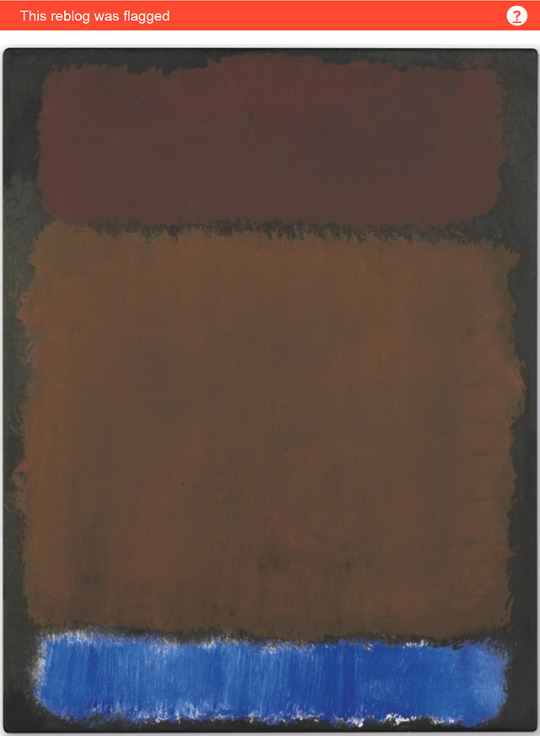Text
I feel extremely seen / attacked by #8 & #12
13 Irrational Beliefs (Albert Ellis)
A list of common, sub-conscious irrational beliefs
Based on the work of Albert Ellis who developed Rational Emotive Behaviour Therapy
1. I must do well and get the approval of everybody who matters to me or I will be a worthless person.
2. Other people must treat me kindly and fairly or else they are bad.
3. I must have an easy, enjoyable life or I cannot enjoy living at all.
4. All the people who matter to me must love me and approve of me or it will be awful.
5. I must be a high achiever or I will be worthless.
6. Nobody should ever behave badly and if they do I should condemn them.
7. I mustn’t be frustrated in getting what I want and if I am it will be terrible.
8. When things are tough and I am under pressure I must be miserable and there is nothing I can do about this.
9. When faced with the possibility of something frightening or dangerous happening to me I must obsess about it and make frantic efforts to avoid it.
10. I can avoid my responsibilities and dealing with life’s difficulties and still be fulfilled.
11. My past is the most important part of my life and it will keep on dictating how I feel and what I do.
12. Everybody and everything should be better than they are and, if they’re not, it’s awful.
13. I can be as happy as is possible by doing as little as I can and by just enjoying myself.
945 notes
·
View notes
Text
Things You Are Going To Find In A Dostoyevsky Novel:
-Epilepsy -Fainting spells -Murder -Existential crises -Awkward main characters who can’t do anything -Crying -Lots of crying -Sickness, literally all the time -Hysterical women -Screaming and yelling -Did I mention hysteria? -Or crying? -Or SICKNESS
5K notes
·
View notes
Photo







Not to pile on here, but this doesn’t look exactly promising.
It means every art blog would have to go through every post one by one and appeal individual flagged posts as not to lose content. Seems unlikely.
How the algorithm is designed to flag abstract art as obscene is beyond my understanding.
15K notes
·
View notes
Text
Algorithmic Semantic Market Response
do you guys wanna see maybe the stupidest most absurd life hack video i’ve ever seen
71K notes
·
View notes
Text
Reminder
NO ONE CAN TELL ME WHERE THE GIANT PRIMORDIAL NORSE COW WENT
STILL
WHERE THE HELL DID SHE GO?
20K notes
·
View notes
Text
This is also the other side of the coin of 2 generations of stagnant or falling wages for working people in the US and much of the West. The only way to keep a consumer economy running under those conditions is constantly falling prices + credit/asset bubbles. And neither of those things are sustainable. Multiply this story by 100 other industries, and you’ve got the way our global economy works, or fails to work. It’s a ruthless race to the bottom, and well, eventually we get there.
the mechanism of production, or: why fast fashion sucks, structurally
I had a conversation with a couple of friends about clothing, and how it’s made, earlier this week, and it wandered into territory I thought y'all might find interesting. So here’s what I had to say, more or less. Basically: there is a reason the clothes you buy at H&M are so shitty, and it’s not exactly that they’re doing it on purpose. Well, it sort of is. But mostly, it’s because they can’t not be shitty. It’s because the entire production chain, start to finish, has become structured in such a way that it is actually quite difficult to produce quality clothing. When you buy a piece of clothing at a modern retail store, you are probably buying clothing made with dubiously ethical labor, of fabric sourced to cost as little as possible, made of pieces cut on machines designed to cut as many pieces of fabric as quickly, simply, and efficiently as possible. At every step in the chain, every step that can be cut has been cut. The process of clothing manufacturing is, at this point, breathtakingly streamlined, and it results for the most part in a very specific type of clothing. If you have any familiarity with vintage clothing, you are probably aware that they are usually of significantly higher quality than most modern clothing. When I say “vintage” I mean, in particular, clothes made before about 1965– before the offshoring of our garment industry began. Most clothes worn in the United States before that time were made domestically, by union labor– that is, skilled workers being paid a living wage. This is relevant. Also relevant is the fact that clothes used to cost more, as a proportion of a person’s income. The average woman in 1950 had one-quarter a modern woman’s wardrobe, and paid a higher percentage of her income for that wardrobe than a modern woman does. That vintage wardrobe, though smaller, was made to a higher standard– sturdier fabrics, better tailoring, sewn from more complex patterns, adorned with more details and better finishing. That wardrobe routinely featured things like deep-pocketed skirts, matching belts, bound buttonholes, pintucks, piping. These are not things we often see in modern fast fashion. What happened? Well, it starts with labor. When we lost the domestic garment industry, we lost that pool of skilled labor, and switched to a lower-skilled, lower-paid labor pool. We switched to an emphasis on making as many simple garments as possible, as quickly as possible, rather than fewer, more complex pieces. We chose $5 t-shirts over $250 day dresses. Which is not to imply that I’m judging people who wear fast fashion. It’s a completely rational economic decision to buy the clothes you can afford, and there are other factors at play here, too. For instance, the price of fabric was once much lower, and home sewing a much more accessible hobby. Due in part to environmental factors and our changing climate, the price of cotton has risen in recent years– why do you think those whisper-thin cotton knits have been the prevailing trend? Why do you think everyone who can get away with it has switched to synthetics? This is the point I’m trying to make: at every step in the production chain, from the manufacture of fabric to the design and assembly of the clothes themselves, someone has decided to do the least expensive thing. Shift dresses require less complex cutting than structured ones– and what, coincidentally, has been the most common shape you see in stores? Miniskirts require less fabric than long skirts– and minis are, coincidentally, in vogue. Sheer fabrics require less raw material to manufacture; machine-assisted beading and studding takes less-skilled labor and less time than other forms of embellishment that call for skill and handwork. Garment workers being paid pennies a piece earn more when they don’t have to add pockets or extra finishing, or sew buttons on too securely. The cutting machines that stamp out pieces to be assembled into clothing? They’re loaded with as thick a stack of fabric as possible, because the more fabric you cut at once, the more clothes you can make in a day. The thicker the fabric, the fewer pieces you can cut at once; the more pieces you cut, the greater the margin for error, so better make those pieces simple. Clothes that fit close to the body need to be cut and sewn more precisely, unless they’re made of stretchy fabric. Boy, leggings sure are popular these days. We’re seeing the end result of a garment industry that has cut itself to the bone in pursuit of profit. The clothing currently in stores reflects an industry that has streamlined every process it’s capable of. This has actually influenced trends and driven fashion in a direction that calls for cheap-to-manufacture clothing. It’s a process that is fundamentally unsustainable, because there’s only so much you can cut before you’re left with rags. And it’s built on the backs of a labor pool that has begun to protest its treatment, to demand fair wages and attempt to unionize. If that happens– and I sincerely hope it does– we may begin to see the price of clothing rise again. With it, if we’re lucky, we may see a rise in quality. When the people who make your clothing are paid a living wage, when they have the ability to develop their skills and be fairly compensated for them, there is a ripple effect through the whole production chain. We might end up with smaller wardrobes. But perhaps the pieces in them will be worth owning.
3K notes
·
View notes
Video
Ugh, it’s alarming how subtle and rhetorically strategic the OP was. You’d easily mistake it for the kind of simple ignorance and carelessness that you run into (and silently or publicly critique, depending on your mood) just constantly in otherwise positive posts. But it’s actually carefully crafted to divide folks along intersectional lines. So much of the stuff later identified as Russian FUD seemed so crude and halfassed that it was almost dismissable by sophisticated, culturally literate internet users. It’s easy to get overconfident and think you’d never fall for it yourself. Posts like this are a warning sign that if a level of sophistication that can sneak by just about anyone isn’t already here, it’s coming quickly.
tumblr


Holly Maniatty, a certified sign language interpreter upstaged hip-hop icon Snoop Dogg with her enthusiasm during his concert at the Jazz Fest in New Orleans. Maniatty has worked numerous festivals and concerts with well-known rappers including Beastie Boys, Wu-Tang Clan and Killer Mike and this isn’t the first time that she has stolen the show with her major skills.
This looks like some special type of sign language that assists people with understanding the beats and innuendo along with lyrics.
Snoop Dogg made the right choice!
59K notes
·
View notes
Note
Same, and rad, but sadly completely inaccurate in my case.
if you fuse your chinese zodiac with your astrology sign you get ur ultimate fursona
virgin dog
3K notes
·
View notes
Text
Once upon a time there was a city called Omelas, where everyone lived good and happy and fulfilling lives.
And in time it came to pass that a young man by the name of Outis came of age in that city; and, as with all who lived in that city, he was taken to a secret place where a wise elder showed him a small cold dirty room. And in that room there was a small cold dirty child, naked and hurt and starving, who had never known the least human kindness.
And the wise elder said to Outis, “In our city, everything is good and no one suffers. But it all depends on this child. If the least kindness is shown to him, our city will become like all other cities. There must always be such a child in Omelas.” …
…And Outis said to the elder, “If our city becomes like all other cities, many children will suffer.” And so he became a citizen of Omelas. And Outis led a good and happy and fulfilling life; and the child continued to suffer.
…And Outis said to the elder, “I will have no part in this evil thing.” And he walked away from Omelas. And Outis led a cold and short and brutish life; and the child continued to suffer.
…And Outis said to the elder, “I will have no part in this evil thing.” And he took the child and bathed him and cared for his wounds. And the city of Omelas became like all other cities; and many children suffered there.
…And Outis said to the elder, “I will have no part in this evil thing.” And he took the child and bathed him and cared for his wounds. And the city of Omelas carried on as it always had; and from that day forth no child suffered there.
…And Outis said to the elder, “I will have no part in this evil thing.” And he took the child and bathed him and cared for his wounds. And the city of Omelas became like all other cities; and many children suffered there.
But Outis, who would leave no child to suffer, worked tirelessly to save each one of them, and to build with his own hands a city in which everyone lived a good and happy and fulfilling life; and so in time it came to pass that the latter days of Omelas were greater than the former. And for ten trillion years Omelas carried on, and no child ever suffered there again.
…And Outis said to the elder, “Nevertheless, this child is my son, and I will not leave him to suffer.” And he took the child and bathed him and cared for his wounds. And the city of Omelas became like all other cities; and many children suffered there. But Outis did not care, because he valued the well-being of his son over all of them.
…And Outis asked the elder, “Why?” And the elder showed him to a library filled with books. And Outis studied the books for many years. And when he was an old man with a gray beard, Outis went out of the library and returned to the child and took the child out of the room, and in the child’s place he put a stone. And the stone was naked and dirty and cold; and the child Outis took and bathed and cared for. And Omelas carried on as it always had; and from that day forth no child suffered there.
Once upon a time there was a city called Omelas, where everyone lived good and happy and fulfilling lives; except for one child, who suffered so that the city might prosper. And all who lived there knew of this…
…And each citizen of Omelas, having looked into himself and seen that he would stand by while a child suffered in abject misery, found in himself a new willingness to do dark and evil deeds. And in time, all those who lived in Omelas suffered.
…And each citizen of Omelas lived with the gnawing guilt of his complicity, and the abiding terror that his own child would be chosen as the next to suffer. And in time it seemed to them that they could take no joy in any of the glories of Omelas.
…And one night, the child rose up and went out of his room and killed all the people of Omelas in their sleep.
Once upon a time there was a city called Omelas, where everyone lived good and happy and fulfilling lives. And each morning, each citizen of Omelas was taken to a small cold dirty room, and shown a small cold dirty child, and told that the child must suffer so that his day might be filled with all good things.
And all in Omelas agreed that it was better that one child should suffer than many; and none of them ever asked if it was the same child they saw each morning. And after all, one small cold dirty child looks much like another.
Once upon a time there was a city called Omelas, where everyone lived good and happy and fulfilling lives; except for ten thousand children, who suffered so that the city might prosper. And all who lived there knew of this…
…but none of them were ever taken to see the children in person, so none of them ever did anything about it.
…and whenever anyone saw such a child and “shouldn’t we rescue that suffering child?”, the other citizens of Omelas laughed and replied to them, “Naïve fool! Don’t you know that a child must always suffer in Omelas, so that the city may prosper? Otherwise it would become like all other cities, and many children would suffer.”
And everyone nodded wisely and went along with their days; and so ten thousand children continued to suffer where it might have been only one.
Once upon a time there was a city called Omelas, where everyone lived good and happy and fulfilling lives.
And in time it came to pass that a young man by the name of Outis came of age in that city; and, as with all who lived in that city, he was taken to a secret place where a wise elder showed him a small cold dirty room. And in that room there was a small cold dirty child, naked and hurt and starving, who had never known the least human kindness.
And the wise elder said to Outis, “In our city, everything is good and no one suffers. But it all depends on this child. If the least kindness is shown to him…”
“…the city will continue on as it always has, only your internet will be slightly slower.”
And Outis went back up into the city, and on that day he became a citizen of Omelas; and the child continued to suffer.
“…the best predictions of our scientists suggest that there will be a slight average decrease in various hard-to-measure kinds of happiness, which nevertheless in total adds up to more suffering than this child experiences.”
And Outis said to the elder, “I will have no part in this evil thing.” And he took the child and bathed him and cared for his wounds. And the average happiness increased in some ways and decreased in others, and the net effect might have been negative, but the best results on the matter had p > 0.05, so the scientists of Omelas could not rule out the null hypothesis.
Once upon a time there was a city called Omelas, where everyone lived good and happy and fulfilling lives.
And in Omelas there was a naked dirty child in a small dirty room; because the child was agoraphobic and was making mudpies.
Once upon a time there was a city called Omelas, where everyone lived good and happy and fulfilling lives.
Very few people told stories about Omelas, but it was a very nice place to live in.
23K notes
·
View notes
Quote
Modernist manuals of writing often conflate story with conflict. This reductionism reflects a culture that inflates aggression and competition while cultivating ignorance of other behavioral options. No narrative of any complexity can be built on or reduced to a single element. Conflict is one kind of behavior. There are others, equally important in any human life, such as relating, finding, losing, bearing, discovering, parting, changing.Change is the universal aspect of all these sources of story. Story is something moving, something happening, something or somebody changing.
Ursula K. Le Guin (via orlathewitch)
8K notes
·
View notes
Text
at my job we have to go through a training program that teaches us the library of congress classification system, and when i was first being trained my boss started to boot it up and she gave me a really anxious and guilty look and said “listen, i’m really sorry in advance, there’s nothing i can do about this, just…. just try to get through it” and i was like lol what’s she talking about and then the program loaded and i was greeted with a deliriously funny-looking photoshopped wizard with glowing eyes pointing at some intro message like “AH YES, JUST AS THE PROPHECY FORETOLD… APPRENTICE, YOU COME AT A TIME OF MOST DIRE NEED… YOU MUST LEARN OUR WAYS” and my boss just looked at me helplessly and was like “i’m so sorry. it’s like two hours long.”
thankfully it wasn’t an elaborate fever dream and i have found screenshots


116K notes
·
View notes
Photo

“I was born halfway between poverty and the sun. Poverty kept me from thinking all was well under the sun and in history; the sun taught me that history was not everything.” - Albert Camus
Happy birthday, Camus.
406 notes
·
View notes
Photo
This basically reads like a threat or an omen today.

23K notes
·
View notes
Photo
In 2017, it's almost inevitable that a series whose whole point is to demonstrate that intelligence is monstrous and sociopathic without empathy and humanity has managed to acquire a fanbase that instead fetishizes the sociopathy. (Of course, y’know, cf. Walter White.)

superwholock 2
37K notes
·
View notes
Text
This is one of the really bad things about letting your tastes define your identity and/or how you judge others. And I’ve found it to be one of the surprisingly and gratifyingly freeing things about letting all of that go. Which is not to say that I've totally cured myself of that tendency (or that it's not sometimes a useful lens when used in concert with behavioral cues), but to the extent that I have, I feel freer, better, more empathetic and better able to engage with a broader range of perspectives and ideas.
like, me liking the new blade runner doesn’t mean i think women in art should be reduced to vessels for infants or that i’m ok with futuristic stories that erase people of color from their cities, or that i’m too dumb to understand that the original deckard is an anti-hero. it means i enjoyed the experience of watching the film and that i am enjoying the experience of thinking about the film.
look i’m obviously not saying that noticing those things is bad, i think it’s important to engage our politics in our reception and review of art, and i am glad people are challenging themselves to do that more and more. but if these are the first, last & only lenses you use to judge art, or you can’t tell the difference between an idea that’s been complicated or perverted on purpose (or perhaps in the fallout of exploring another idea) and a genuinely evil idea, i’m worried.
23 notes
·
View notes
Audio
2017 vibes.
The car is on fire, and there’s no driver at the wheel And the sewers are all muddied with a thousand lonely suicides And a dark wind blows The government is corrupt And we’re on so many drugs With the radio on and the curtains drawn We’re trapped in the belly of this horrible machine And the machine is bleeding to death The sun has fallen down And the billboards are all leering And the flags are all dead at the top of their poles It went like this: The buildings tumbled in on themselves Mothers clutching babies Picked through the rubble And pulled out their hair The skyline was beautiful on fire All twisted metal stretching upwards Everything washed in a thin orange haze I said, “Kiss me, you’re beautiful - These are truly the last days” You grabbed my hand And we fell into it Like a daydream Or a fever We woke up one morning and fell a little further down For sure it’s the valley of death I open up my wallet And it’s full of blood
4K notes
·
View notes
Quote
I think, I mean one of the things that really focuses that is the amount of cynicism there is on the Internet. You know, I think, unfortunately - it's a wonderful thing, the Internet. And because it allows - you know, back in the old days, if you were angry about - well, I said the old days - when I was 19. If you were angry about the world and you come from a background like mine, there was really only one outlet for you. That was to learn to play an instrument, write songs and do gigs. That was the only platform that was available to a working-class kid. Now if you feel angry about the world, there's plenty of ways you can express that. But unfortunately, you also have to face down the worst kind of anger out there, particularly, you know, the way that women are treated online. You know, you can tell by reading responses that the people who are abusing and attacking young, intelligent women are the exact opposite of young, intelligent and women, you know? You can see that by the way they talk. And that's something that we all have to work with. So, you know, I have a song called "I Keep Faith" that I play that I introduce with that, you know, that message about fighting our own cynicism. And people come to me afterwards and say that particular song, that moved them to tears. And that's good for me because that's the kind of empathy I'm talking about that we - it's the currency of all of us who want to make music, you know, and having faith in one another that we can hang together and we can go forward, particularly the times we live in at the moment in your country and mine. That's a very valuable thing to have. So that's the kind of message I want to put out. Maybe it's not so political as "There's Power In A Union." But I believe it cuts deeper in the times that we live in.
http://www.npr.org/2017/09/04/547318808/billy-bragg-on-skiffle-the-movement-that-brought-guitar-to-british-radio (Billy Bragg is a treasure, pt. 2.)
0 notes